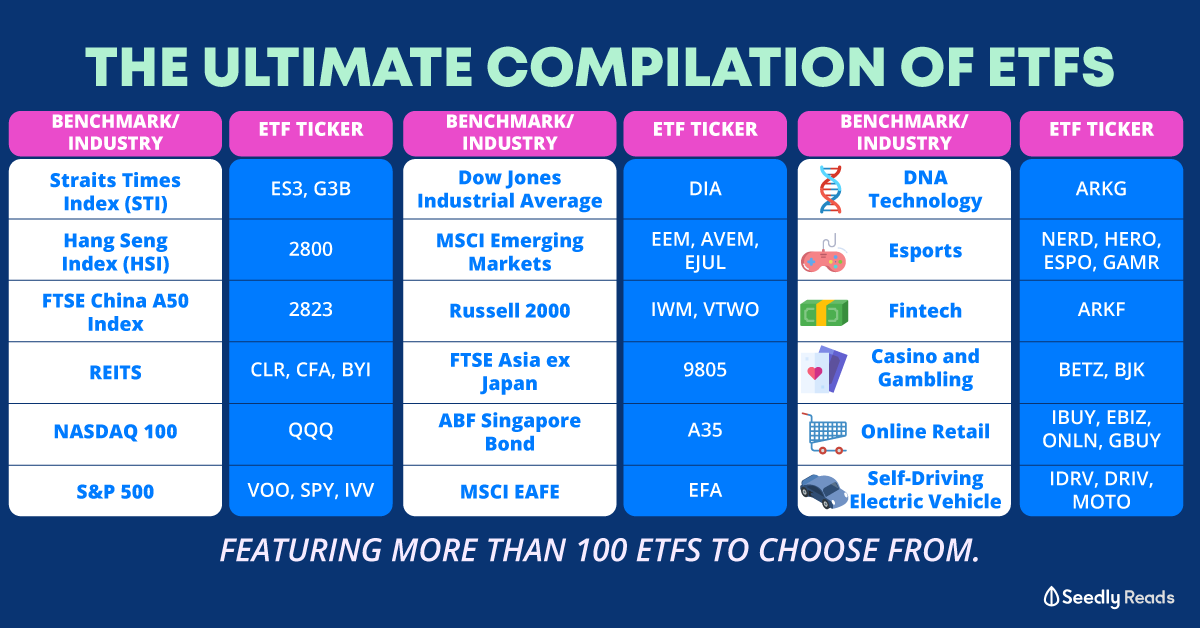Advertisement
Anonymous
What is an ETF (Exchange Traded Fund)?
How do you explain what an ETF is?
1
Discussion (1)
What are your thoughts?
Learn how to style your text
Kenneth Lou
09 Mar 2020
Co-founder at Seedly
Reply
Save
Write your thoughts
Related Articles
Related Posts
Related Posts
Advertisement








You would probably be very familiar with ETFs through the STI ETF or the various bond ETFs that are very popular to Singaporean investors.
An ETF, or an exchange-traded funds, is an index-tracking investment vehicle listed on a major exchange. Indices are composed of asset classes, such as stocks or bonds, in a particular segment of the market, such as technology, energy, or real estate.
ETFs are funds that are traded like stocks, but have the diversified portfolio structures of a mutual fund. ETFs provide passive exposure to any asset class by mirroring the returns of an index. For example, the SPDR SPY S&P500 is an ETF that tracks the performance of the S&P500.
ETFs offer diversification, higher liquidity than individual securities, and lower fees.